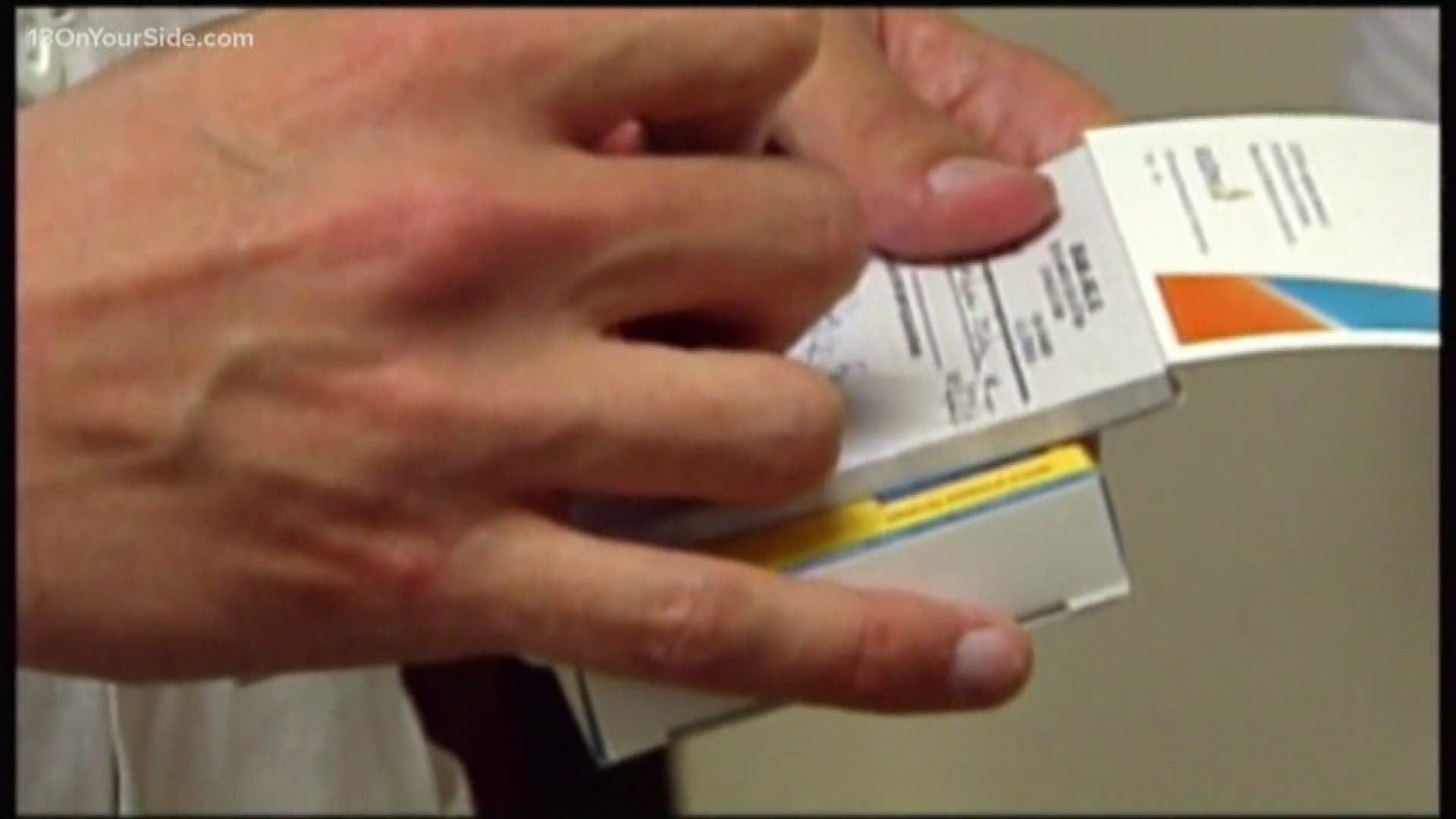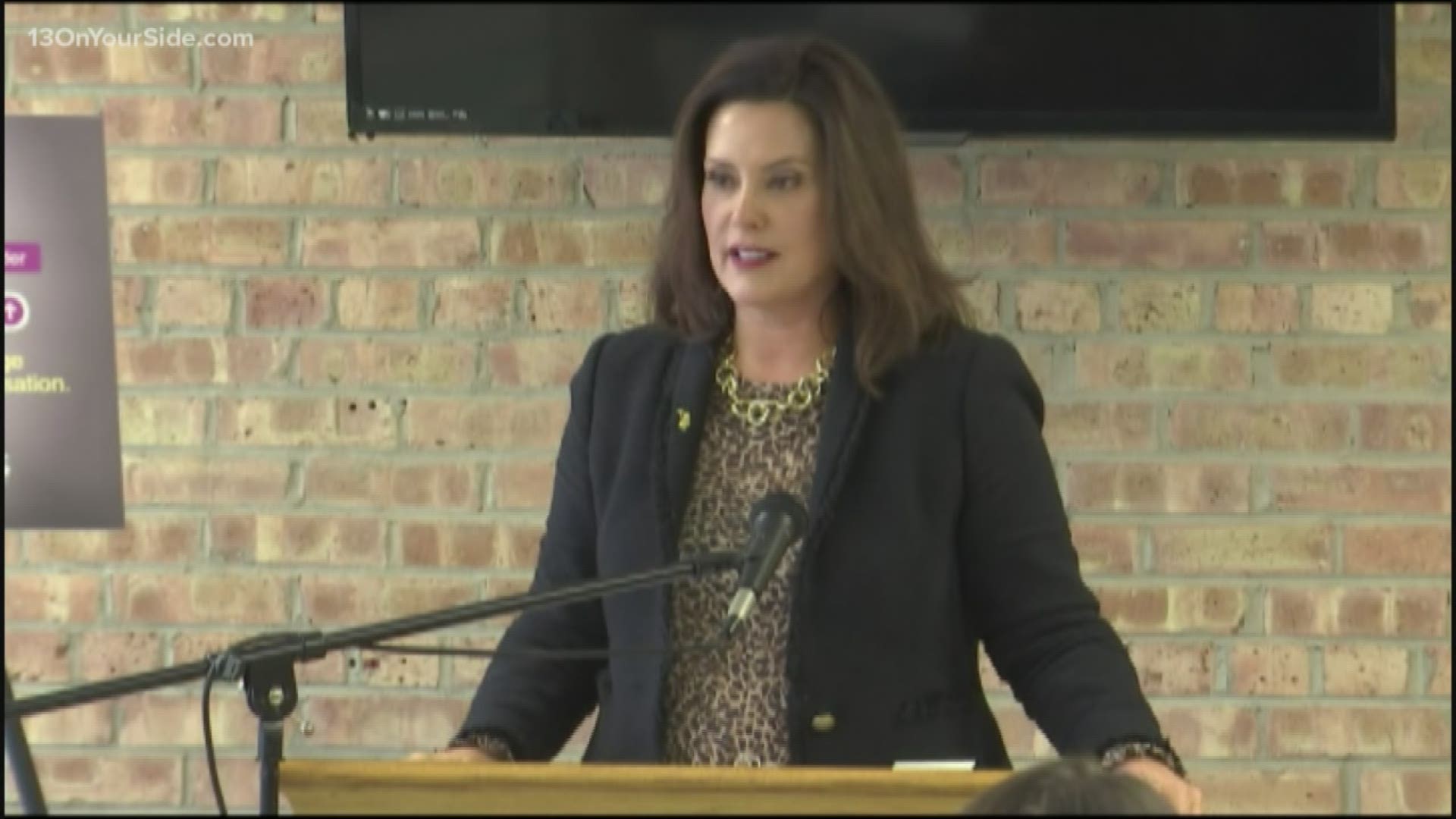LANSING, Mich. — Michigan became the first state in the country on Tuesday to sue major opioid distributors as drug dealers.
The state filed a lawsuit against Cardinal Health Inc., McKesson Corporation, AmerisourceBergen Drug Corporation and Walgreens Tuesday morning in Wayne County Circuit Court.
“These companies knowingly and deliberately used their licenses to distribute drugs in our state without controls,” said Michigan Attorney General Dana Nessel. “This was not only negligent; it was unlawful, a public nuisance and, as a result, their actions subject these companies to liability under Michigan’s Drug Dealer Liability Act.”
In the lawsuit, the state says the four companies:
- Distributed and sold opioids in ways that facilitated and encouraged their flow into the illegal, secondary market;
- Distributed and sold opioids without maintaining effective controls against the diversion of opioids;
- Chose not to effectively monitor suspicious orders;
- Chose not to investigate suspicious orders;
- Chose not to report suspicious orders;
- Chose not to stop or suspend shipments of suspicious orders; and,
- Distributed and sold opioids prescribed by “pill mills” when these companies knew or should have known the opioids were being prescribed by said “pill mills.”
Because the companies knowingly participated in the illegal distribution of the prescription opioids purchased by Michigan residents, the suit charges they are liable to the state of Michigan under the Drug Dealer Liability Act for damages caused by opioids acquired from their distribution channels.
“The opioid crisis is hurting families from Downtown Detroit all the way to the Upper Peninsula, which is why last month, I announced a statewide goal for the State of Michigan to reduce the number of opioid deaths by 50 percent in 5 years,” said Governor Whitmer. “The work Attorney General Nessel’s office is doing will be crucial in us reaching that goal. I applaud the Attorney General for her leadership and will continue to work closely with her and everyone else who wants to help Michiganders struggling with opioid use disorder and their families.”
According to the Washington Post, between 2006 and 2012, more than 1.1 million pills came across the border every day. In 2018, 2,036 of the 2,599 overdose deaths in Michigan were opioid-related.
“Michigan’s opioid addiction crisis and the devastation it has wrought on families, communities and our state demanded our attention when the Governor and I took office nearly a year ago,” said Nessel, who quickly directed her department to focus on litigation on several fronts, including taking legal action in tandem with other states. The state also sought out a team of attorneys with national experience to pursue Michigan-specific litigation.
To view the filed complaint, click here.
More from 13 ON YOUR SIDE:
RELATED VIDEO:
►Make it easy to keep up to date with more stories like this. Download the 13 ON YOUR SIDE app now.
Have a news tip? Email news@13onyourside.com, visit our Facebook page or Twitter. Subscribe to our YouTube channel.


